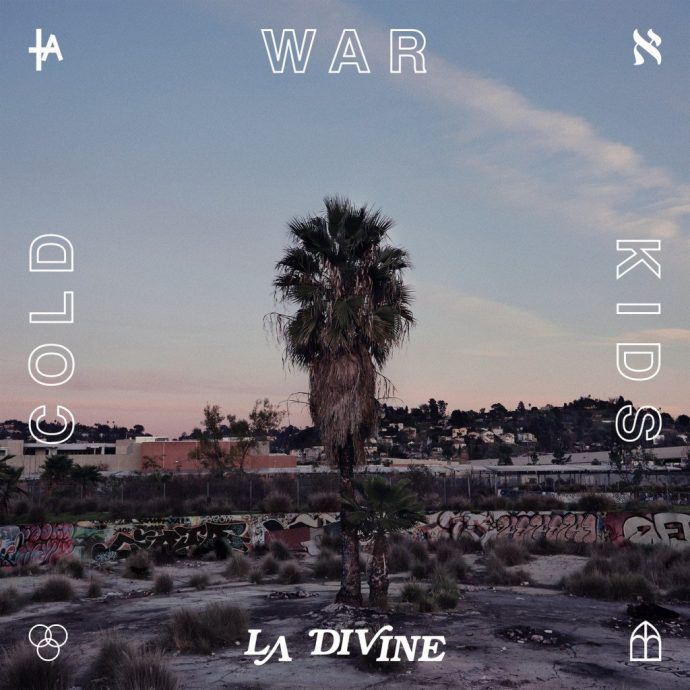Cold War Kids was a foot-stomping, straight-up indie band led by Nathan Willett’s blaring vibrato. Unordinary, yet somehow familiar vocals with honest, simple lyrics. Yet, in their latest album, LA Divine, much of what made them original has been refined to the point of mainstream, right down to lyrical content. Pastiches such as “can’t get you out of my head,” in “Invincible;” “there’s a war inside my head,” in spoken word-style “Wilshire Protest;” and “I’ll always be the underdog,” in “Ordinary Idols” come off as pretentious and disconnected from reality. Cold War Kids’ band chemistry is reduced to, and over-processed like white sugar spoon fed to listeners by Willett’s bellowing, soulful proclamations of clichés.
The main instruments are vocals, drums and piano, with a secondary bass, and sparse guitar sprinkled throughout. Cold War Kids released three singles, all of which sounded more like they were released by a singer-songwriter than a full band. They are miles away from Up in Rags (2006) or even Loyalty to Loyalty (2008) it seems that Willett has become disconnected with writing songs “just [to] write songs,” and has become too focused on whether or not what he is releasing will sell (Willett, NPR.org, 2008).
The album title, LA Divine summarizes the poppy Los Angeles feel, with airy riffs sprinkled throughout. The tracks reflect on the art world’s preoccupation with the city; although the cultural mecca is unique and full of artistic opportunity, often, sunny L.A. can be shrouded in darkness and failure.
The first single off the album, “Love is Mystical” is full of lofty lyrical abstractions that seem pretentious and almost dishonest as if they are trying too hard to articulate something for listeners to relate to. The ballad style of the vocals are complimented by simple drum beats, which is a departure from the more mismatched navigation of time-signature changes and compositional soundscapes of their earlier works. Following this track was “Can We Hang On?” a question that it seems the band is asking about their own credibility. Albeit dreamy, each of the instruments (including vocals) were rhythmically simple, and the patterns quickly became uninteresting to the listener.
The transition songs serve to break up the constant palpitations of the suffering kick drum which drones almost non-stop throughout. “L.A. River,” was a delightful surprise in the form of a minute-long intermission song, fixed within the first half of the album. The vocals pan right, drowning in a river of reverb, and are quieter and more honest than those on the other songs. Even the lyrics, “But tell me why you wanna stay in New York… you don’t know anyone,” sound more authentic – it almost makes the listener forgive Willett for the rest of the album. What made it stand out the most was the heavily affected, detuned guitar. The distorted, lo-fi riff slides around on the left side to face Willett’s vocals head on.
But the moment of zen is interrupted by “No Reason to Run,” and “Restless,” which sound like Fall Out Boy’s “Infinity on High” but with Adam Lambert vocals. Although Willett is hyper-flexing his vocal ability, it is well-complimented by the guitar which had been markedly missing.
Refined, over-processed, and insincere, the tracks had to do with fame, and ironically, living authentically. The listener can sense moments of honesty within “Cameras Always On,” but songs like this and “Ordinary Idols,” are truly where Willett takes the time to stroke his ego. Vanity permeates lines like “Why would you idolize me?” and “Obsessing, fanticizing; I’ll always be the underdog,” followed by the greedy cliché “give me more,” repeated over and over. LA Divine is full of ambivalence as well as brief glimpses at the talented creative minds that created the first EPs, and orchestrated early live shows.
Rating: 4.5/10

